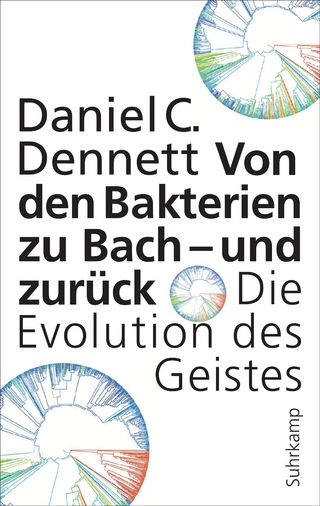
Thinking About Statistics
The Philosophical Foundations
Seiten
2023
Routledge (Verlag)
978-1-032-32610-8 (ISBN)
Routledge (Verlag)
978-1-032-32610-8 (ISBN)
Simply stated, this book bridges the gap between statistics and philosophy. It does this by delineating the conceptual cores of various statistical methodologies (Bayesian/frequentist statistics, model selection, machine learning, causal inference etc.) and drawing out their philosophical implications.
Simply stated, this book bridges the gap between statistics and philosophy. It does this by delineating the conceptual cores of various statistical methodologies (Bayesian/frequentist statistics, model selection, machine learning, causal inference, etc.) and drawing out their philosophical implications. Portraying statistical inference as an epistemic endeavor to justify hypotheses about a probabilistic model of a given empirical problem, the book explains the role of ontological, semantic, and epistemological assumptions that make such inductive inference possible. From this perspective, various statistical methodologies are characterized by their epistemological nature: Bayesian statistics by internalist epistemology, classical statistics by externalist epistemology, model selection by pragmatist epistemology, and deep learning by virtue epistemology.
Another highlight of the book is its analysis of the ontological assumptions that underpin statistical reasoning, such as the uniformity of nature, natural kinds, real patterns, possible worlds, causal structures, etc. Moreover, recent developments in deep learning indicate that machines are carving out their own "ontology" (representations) from data, and better understanding this—a key objective of the book—is crucial for improving these machines’ performance and intelligibility.
Key Features
Without assuming any prior knowledge of statistics, discusses philosophical aspects of traditional as well as cutting-edge statistical methodologies.
Draws parallels between various methods of statistics and philosophical epistemology, revealing previously ignored connections between the two disciplines.
Written for students, researchers, and professionals in a wide range of fields, including philosophy, biology, medicine, statistics and other social sciences, and business.
Originally published in Japanese with widespread success, has been translated into English by the author.
Simply stated, this book bridges the gap between statistics and philosophy. It does this by delineating the conceptual cores of various statistical methodologies (Bayesian/frequentist statistics, model selection, machine learning, causal inference, etc.) and drawing out their philosophical implications. Portraying statistical inference as an epistemic endeavor to justify hypotheses about a probabilistic model of a given empirical problem, the book explains the role of ontological, semantic, and epistemological assumptions that make such inductive inference possible. From this perspective, various statistical methodologies are characterized by their epistemological nature: Bayesian statistics by internalist epistemology, classical statistics by externalist epistemology, model selection by pragmatist epistemology, and deep learning by virtue epistemology.
Another highlight of the book is its analysis of the ontological assumptions that underpin statistical reasoning, such as the uniformity of nature, natural kinds, real patterns, possible worlds, causal structures, etc. Moreover, recent developments in deep learning indicate that machines are carving out their own "ontology" (representations) from data, and better understanding this—a key objective of the book—is crucial for improving these machines’ performance and intelligibility.
Key Features
Without assuming any prior knowledge of statistics, discusses philosophical aspects of traditional as well as cutting-edge statistical methodologies.
Draws parallels between various methods of statistics and philosophical epistemology, revealing previously ignored connections between the two disciplines.
Written for students, researchers, and professionals in a wide range of fields, including philosophy, biology, medicine, statistics and other social sciences, and business.
Originally published in Japanese with widespread success, has been translated into English by the author.
Jun Otsuka is Associate Professor of Philosophy at Kyoto University and a visiting researcher at the RIKEN Center for Advanced Intelligence Project in Saitama, Japan. He is the author of The Role of Mathematics in Evolutionary Theory (Cambridge UP, 2019).
Introduction 1. The Paradigm of Modern Statistics 2. Bayesian Statistics 3. Classical Statistics 4. Model Selection and Machine Learning 5. Causal Inference 6. The Ontology, Semantics, and Epistemology of Statistics
| Erscheinungsdatum | 03.01.2023 |
|---|---|
| Zusatzinfo | 2 Tables, black and white; 20 Line drawings, black and white; 20 Illustrations, black and white |
| Verlagsort | London |
| Sprache | englisch |
| Maße | 152 x 229 mm |
| Gewicht | 300 g |
| Themenwelt | Geisteswissenschaften ► Philosophie ► Erkenntnistheorie / Wissenschaftstheorie |
| Geisteswissenschaften ► Psychologie ► Allgemeine Psychologie | |
| Mathematik / Informatik ► Mathematik ► Statistik | |
| ISBN-10 | 1-032-32610-7 / 1032326107 |
| ISBN-13 | 978-1-032-32610-8 / 9781032326108 |
| Zustand | Neuware |
| Informationen gemäß Produktsicherheitsverordnung (GPSR) | |
| Haben Sie eine Frage zum Produkt? |
Mehr entdecken
aus dem Bereich
aus dem Bereich
die Grundlegung der modernen Philosophie
Buch | Softcover (2023)
C.H.Beck (Verlag)
CHF 25,20
Buch | Softcover (2023)
Reclam, Philipp (Verlag)
CHF 9,80
die Evolution des Geistes
Buch | Softcover (2025)
Suhrkamp (Verlag)
CHF 41,95

![Was heißt Denken?. Vorlesung Wintersemester 1951/52. [Was bedeutet das alles?] - Martin Heidegger](/media/113619842)
